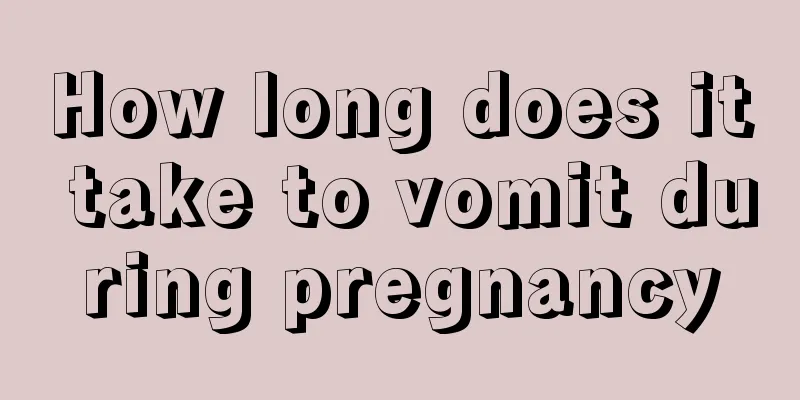No menstruation for two months after curettage

|
After a woman has undergone an abortion or medical abortion, it is very likely that the abortion will not be clean. At this time, the woman needs to undergo a curettage. Curettage is very harmful to women and will make the endometrium thinner and thinner. Most women will experience menstrual disorders after curettage, and may even have uterine cold. So what should I do if I don't have my period for two months after curettage? 1. Caused by endocrine disorders After a uterine curettage, the hormone levels in the body change dramatically, especially the sudden drop in the level of chorionic gonadotropin, which may cause the ovaries to temporarily fail to respond normally to the gonadotropin from the anterior pituitary gland and result in no menstruation two months after the uterine curettage. what to do: Women in this case can adjust their diet, such as eating more calcium-rich foods such as milk and cheese, and foods rich in vitamin E such as chicken, fish, and eggs, to help regulate endocrine balance. In addition to diet, women should also develop good work and rest habits and ensure adequate sleep. 2. Uterine curettage caused The delay of menstruation after uterine curettage may be related to the operation performed during the uterine curettage. For example, if the endometrium is scraped too much, it will take longer to repair, or if the suction catheter enters the uterine cavity multiple times during the curettage and damages the cervical canal mucosa, all of which may affect the normal menstruation after curettage. what to do: Go to the hospital for examination and treatment in time, and it is best to prescribe relevant medications to regulate menstruation according to the doctor's advice. 3. Caused by premature intercourse Sexual intercourse is prohibited within one month after uterine curettage. If a woman has sex too early, it may cause infection and inflammation of the uterine cavity, resulting in irregular menstruation after uterine curettage. what to do: Be gentle during intercourse. If you have intercourse within a short period of time after uterine curettage, you should take antibiotics in time to prevent inflammation and infection. You should also take contraceptive measures. If you feel pain or discomfort, seek medical attention in time. 4 Caused by gynecological inflammation If a woman develops endometritis after a uterine curettage, adhesions may occur in the uterine cavity due to inflammation, resulting in prolonged delay of menstruation. Generally, postoperative inflammation is often accompanied by symptoms such as genital discomfort and lower abdominal pain. what to do: If menstruation is absent and accompanied by pain, it is best for female friends to go to the hospital for examination and treatment in time to avoid delaying the best time for treatment. |
<<: I still have blood after a week of abortion.
>>: Can I take a shower on the fifth day after an abortion?
Recommend
Is it okay for pregnant women to soak their feet in salt water?
For pregnant women, keeping a happy mood and good...
Steaming, stir-frying, boiling, frying, braising, which is the healthiest cooking method?
The Chinese delicacies presented in the food docu...
How to choose the time for induction of labor?
Induced abortion is a surgery that must be perfor...
Itchy and peeling nipples on one side of a woman
Nipple itching is a common breast problem among w...
How does IVF improve egg quality?
If a couple cannot get pregnant normally, the mos...
What are the effects of positive leucorrhea mycoplasma on pregnant women?
Many women may suddenly find that their vaginal d...
How do novices use a drum washing machine? How to solve the problem of 04 appearing on the drum washing machine
As people pay more attention to and improve their...
Pregnant woman with numb hands at night
After becoming pregnant, a woman's body will ...
Distinguish kidney deficiency, yin deficiency and yang deficiency in women
According to surveys, women's sexual desire i...
Counterpoint: iPhone 15 series will occupy the top three best-selling mobile phones in the world in Q3 2024
Research organization Counterpoint Research has r...
How to remedy staying up late during menstruation
Under normal circumstances, women's menstruat...
Can I drink milk tea after double eyelid surgery?
What will happen if you eat chili peppers after d...
vivo: Currently, vivo's overseas sales account for more than half of the total revenue and plan to increase it to 70% of the total revenue in 2027
According to recent news, vivo's Chief Operat...
What should I do if my stomach is uncomfortable during my period?
Women are prone to stomach discomfort during mens...




![[Doctors Talk] What to do with crooked teeth? Orthodontics can help!](/upload/images/67f0a7bb185b6.webp)




